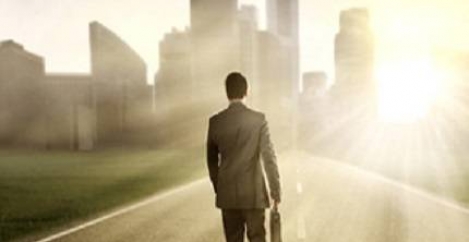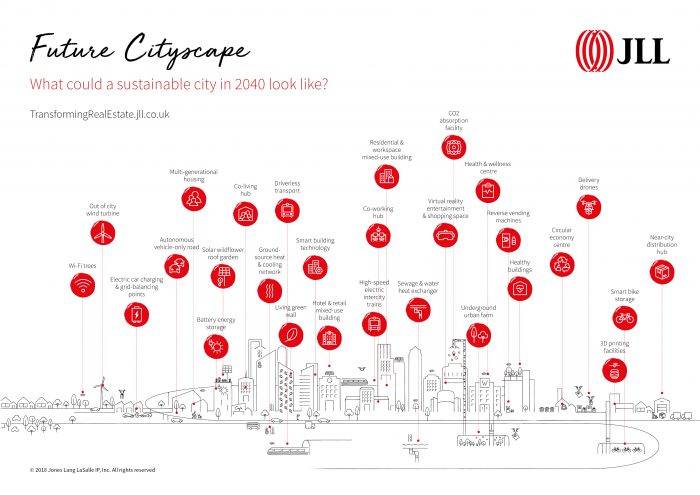March 15, 2018
Future cityscape will feature driverless transport, smart buildings and co-working says JLL

Wi-Fi trees, driverless transport, smart buildings and co-working will be commonplace in 2040 predicts a report (registration required) published by JLL that outlines the ideal cityscape by 2040. The report incorporates a transformation framework aimed at enabling real estate businesses to adapt and thrive in a future city. According to the report, “The Transformation Framework”, the ideal cityscape in 2040 will have adapted to the trends driving the real estate sector over the next 20 years and will include co-working and living space, smart and healthy buildings, Wi-Fi trees, reverse vending machines, driverless transport and multi-generational housing as standard. To create the future cityscape, JLL asked some of the UK’s leading real-estate owners, occupiers, developers and investors what they thought the ideal city would look like in 2040, while taking into account the seven trends that JLL predict will influence real estate and infrastructure globally over the next two decades. These trends included tech innovation, urbanisation, land & resource scarcity, the low carbon economy, demographic & workplace change, health & wellness and transparency & social value.
Alongside the future cityscape, JLL has created a Transformation Framework to enable real estate businesses to respond and thrive in a world in which environmental, economic, and social change is constant. The framework focuses on a company’s business strategy, governance, funding, skills, partnerships and innovation and identifies how each will cope with the challenges presented by the numerous changes in the sector.
Emma Hoskyn, director, Upstream Sustainability Services, JLL, said: “To succeed and thrive in a world that is continuously changing, radical thinking is needed. Rather than tackling each real estate trend individually to accomplish objectives in the short or medium term, companies need to incorporate the seven trends into every step of their business decisions, long-term vision and structure.
“Our future cityscape is a representation of what the real estate industry should strive for, while our transformation framework is the key to helping real estate leaders react and adapt to each trend positively to transform their businesses now and enable them to flourish until 2040, and beyond.”
The image above portrays JLL’s future vision of an ideal cityscape, with co-working and living space, smart and healthy buildings, Wi-Fi trees, reverse vending machines, driverless transport and multi-generational housing all key features.
Launched in 2017, JLL’s Transforming Real Estate campaign has developed a timeline on its dedicated microsite, plotting the last two decades of sustainability history whilst also taking a forward look at the next 20 years.















